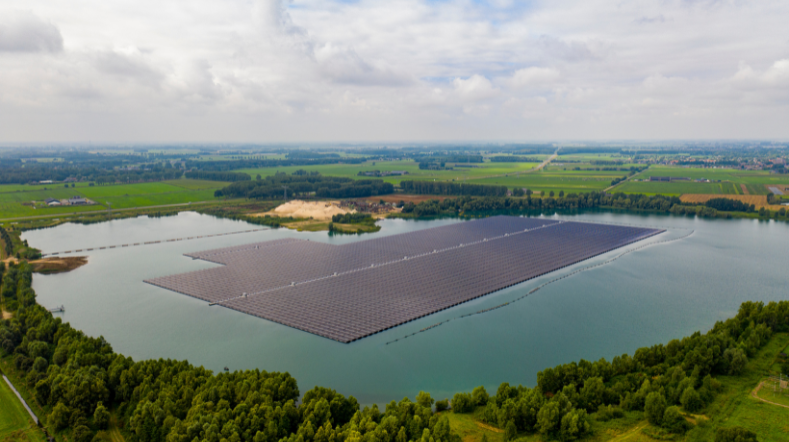
Paved dykes are promising for solar panel application
A study of the possibilities for adding solar panels to dykes shows that solar panels placed on a paved dyke surface are the most suitable and can be applied without much additional research. Systems in which the grass revetment of the dyke is largely shaded by the solar panels are not suitable at present, as the quality of the grass cover deteriorates rapidly. In the ‘Zon op Dijken’ (Solar on Dykes) project, four unique dyke-specific solar systems were designed, built, and then extensively monitored.
The Climate Agreement emphasises that special efforts are needed to integrate solar power or photovoltaic (PV) installations into buildings and infrastructure instead of using agricultural land. This prompted the Dutch Foundation for Applied Water Research (STOWA) and the various local water authorities in the Netherlands to conduct a preliminary study to see which dykes could be used for renewable energy generation. The Netherlands has some 17,000 km of dykes.
Four dyke-specific solar systems tested
The follow-up project, ‘Solar on Dykes’, researched, among other things, whether and how solar energy systems could be implemented without affecting the primary flood-defence function of the dyke. As part of the project, four different systems were designed and constructed at two different dyke locations: a classic system mounted on posts; a system on the dyke’s surface, built on concrete elements; a system that ‘hangs’ above the slope of a dyke; and a system on a paved dyke, where the grass has been replaced by a concrete-like foundation. During the trial period, all the systems were generally found to function very well from the point of view of electricity generation.
Read the end report: Solar on Dykes (in Dutch)
Dykes with paved surfaces
Systems that are installed on paving on the surface of a dyke and that can be easily incorporated into current dyke construction practices (e.g., during a dyke reinforcement operation) can be applied to dykes without much additional research. The study on public support showed, among other things, that systems which are not very visible (in the plane of the dyke) are appreciated most.
Dykes with grass cover
During the study, it was found that the quality of the grass cover deteriorates rapidly when the solar panels take away too much light. The quality of the grass cover is essential for dyke safety when no dyke pavement is present. Removing panels in appropriate places and increasing solar radiation at the level of the dyke cover improved the quality of the grass cover. Further research is needed to arrive at definitive system configurations guaranteed not to affect the grass cover.
The Solar on Dykes project consortium comprises:
TNO, Arcadis, NV Afvalzorg, Stichting Wageningen Research (part of Wageningen University & Research, WUR), Eurorail, Deltares, Soltronergy BV, STOWA, Scheldestromen Water Authority, Zuiderzeeland Water Authority, and Delmeco.
The Solar on Dykes project was carried out with a grant from the Ministry of Economic Affairs and Climate under the Top Sector Energy scheme, implemented by the Netherlands Enterprise Agency. In addition, the knowledge centre of the regional water authorities, STOWA, supported the project with a financial contribution.
Project consortium Solar on Dykes
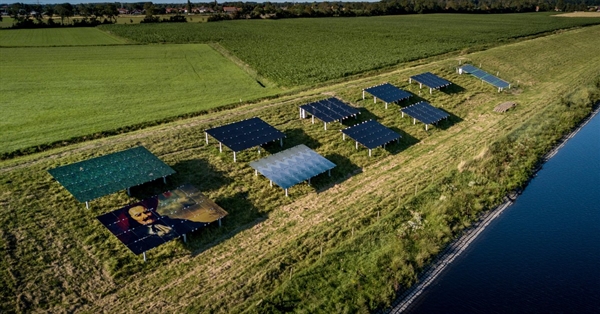
Get inspired
Shade screens with rollable solar foil combines energy generation with climate control in greenhouses
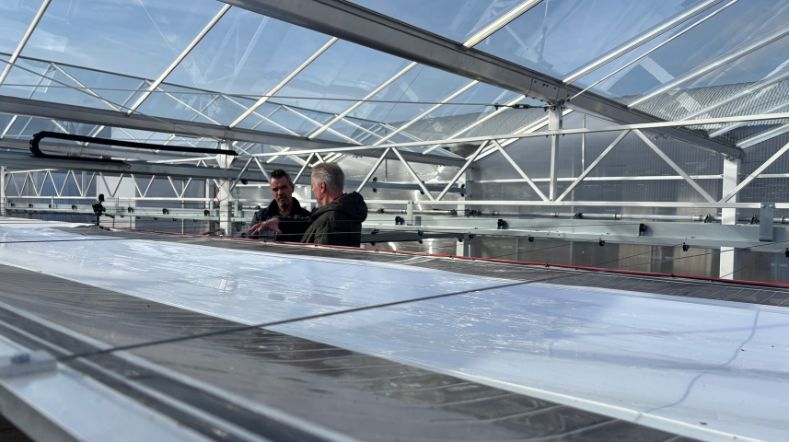

Building fires with solar panels mapped for the first time
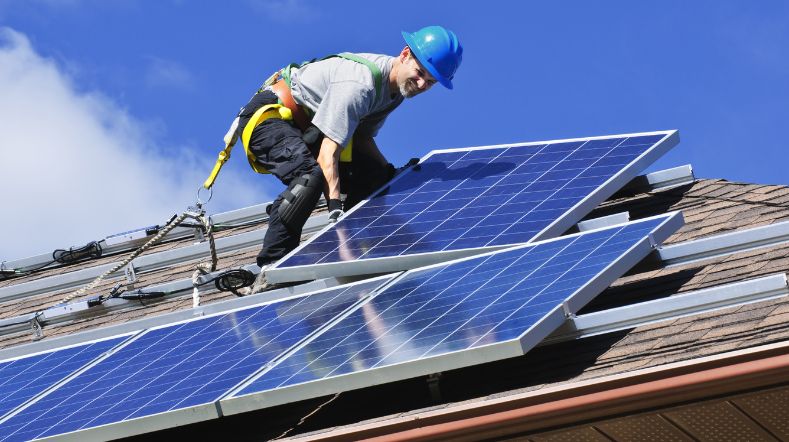

New multifunctional solar window generates energy by reflecting light
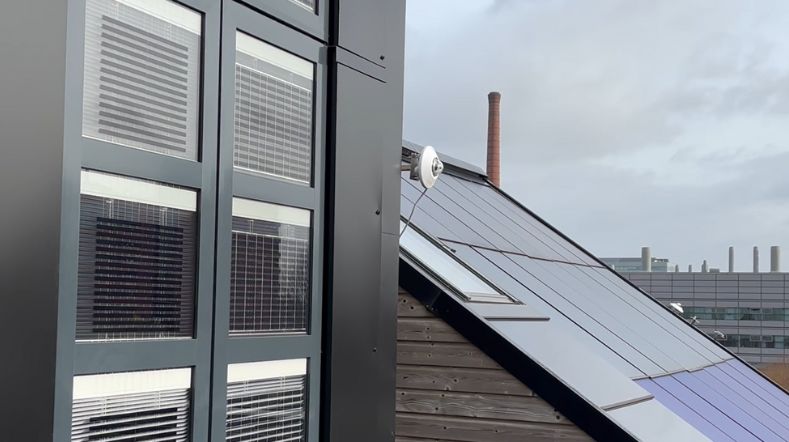

Webinar: Solar energy in Brabant - Building a sustainable future for Europe


Carbon footprint floating solar energy systems similar to land systems
